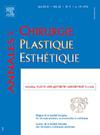[围手术期使用抗生素治疗手部感染]。
IF 0.4
4区 医学
Q4 SURGERY
引用次数: 0
摘要
目的:对于手术治疗后手部感染是否需要术后抗生素治疗,目前尚无一致意见。本研究旨在评估手术治疗后不进行术后抗生素治疗是否有害:我们纳入了 2018 年 1 月至 2023 年 10 月间因手部感染而接受手术的 287 名患者。收集了每位患者的术前或术后抗生素处方。通过一次手术治愈感染的患者被归类为 "简单演变",而需要重复手术或至少出现一种与初始感染直接相关的并发症(感染扩展或坏死)的患者被视为 "复杂":在总共 287 名患者中,我们发现了 188 例副脓肿、40 例痰肿、47 例脓肿和 12 例超级感染伤口。翻修手术率为 9.4%,并发症率为 27.2%。117名(40.8%)患者在术前接受了急诊医生或全科医生的抗生素治疗,其中并发症发生率为31.6%。整组患者的因果关系未达到显著性临界值(P=0.079)。然而,痰患者术前使用抗生素与至少一种并发症的发生直接相关(P=0.032)。总之,82.9%的患者术后不需要抗生素治疗,其中95%的患者治疗过程并不复杂:结论:术前概率性抗生素治疗是导致并发症的一个独立风险因素,尤其是在采集阶段给予抗生素治疗。在正确清创的情况下,术后不应常规使用抗生素。我们建议只有在非常特殊的情况下(骨炎、关节炎、坏死和/或高风险患者)才使用抗生素。本文章由计算机程序翻译,如有差异,请以英文原文为准。
Antibiothérapie périopératoire dans les infections de la main
Objectifs
L’utilisation des antibiotiques en postopératoire dans les infections de la main nécessitant une prise en charge chirurgicale n’est pas consensuelle. L’hypothèse de ce travail est qu’une antibiothérapie postopératoire n’est souvent pas nécessaire à la guérison de l’infection.
Méthodes
Nous avons inclus 287 patients opérés d’une infection de la main entre janvier 2018 et octobre 2023. La prescription d’antibiotiques en préopératoire ou postopératoire était renseignée pour chaque patient. Nous considérions les patients avec évolution simple lorsqu’une seule intervention chirurgicale a permis la guérison de l’infection. Les patients ayant nécessité une reprise chirurgicale ou qui ont eu au moins une complication directement liée à l’infection initiale (extension de l’infection ou nécrose) étaient considérés comme « compliqués ».
Résultats
Sur l’ensemble des 287 patients, nous avons inclus 188 panaris, 40 phlegmons, 47 abcès et 12 plaies surinfectées. Le taux de reprise chirurgicale était de 9,4 % et le taux de complication était de 27,2 %. Des antibiotiques avaient été administrés en préopératoire par les urgentistes ou médecins généralistes chez 117 patients (40,8 %) parmi lesquels 37 (31,6 %) se sont compliqués dans les suites. Le lien de causalité n’a pas atteint le seuil de significativité sur l’ensemble des patients (p = 0,079). Cependant, la prise d’antibiotiques préopératoire chez les patients atteints de phlegmon était directement corrélée avec la survenue d’au moins une complication (p = 0,032). Au total, 82,9 % des patients n’ont pas eu besoin d’antibiothérapie postopératoire parmi lesquels 95 % ont eu une évolution simple.
Conclusions
L’antibiothérapie probabiliste préopératoire est un facteur de risque indépendant de complication si elle est donnée à un stade collecté notamment. Les antibiotiques ne doivent pas être prescrits de manière systématique en postopératoire. Nous préconisons l’utilisation de ces derniers après avoir réalisé un traitement chirurgical correct au bloc opératoire et dans des cas très particuliers (ostéite, arthrite, nécrose et/ou terrain à risque).
Purpose
There is no consensus on the utility of postoperative antibiotherapy in hand infections after surgical management. The aim of this study was to evaluate if the absence of postoperative antibiotic therapy was detrimental after surgical treatment.
Methods
We included 287 patients operated on for a hand infection between January 2018 and October 2023. Preoperative or postoperative antibiotic prescription was collected for every patient. Patients cured for their infection with a single surgery were classified as “simple evolution”, while patients requiring repetitive surgery or who had at least one complication directly linked to the initial infection (extension of infection or necrosis) were considered “complicated”.
Results
From a total of 287 patients, we included 188 paronychia, 40 phlegmons, 47 abscesses and 12 superinfected wounds. The revision surgery rate was 9.4%, and the complication rate was 27.2%. One hundred and seventeen (40.8%) patients received preoperative antibiotic therapy from emergency physicians or general practitioners, among whom a complication rate of 31.6% was observed. The causal link did not reach the significance threshold for the whole group of patients (P = 0.079). However, preoperative antibiotic use in phlegmon patients was directly correlated with the occurrence of at least one complication (P = 0.032). In all, 82.9% of patients did not require postoperative antibiotic therapy, 95% of whom had an uncomplicated course.
Conclusions
Preoperative probabilistic antibiotic therapy is an independent risk factor for complications, particularly if given at a collected stage. Antibiotics should not be routinely prescribed postoperatively in a correct debridement is performed. We recommend that antibiotics be used only in very specific cases (osteitis, arthritis, necrosis and/or high-risk patients).
求助全文
通过发布文献求助,成功后即可免费获取论文全文。
去求助
来源期刊
CiteScore
1.00
自引率
0.00%
发文量
86
审稿时长
44 days
期刊介绍:
Qu''elle soit réparatrice après un traumatisme, pratiquée à la suite d''une malformation ou motivée par la gêne psychologique dans la vie du patient, la chirurgie plastique et esthétique touche toutes les parties du corps humain et concerne une large communauté de chirurgiens spécialisés.
Organe de la Société française de chirurgie plastique reconstructrice et esthétique, la revue publie 6 fois par an des éditoriaux, des mémoires originaux, des notes techniques, des faits cliniques, des actualités chirurgicales, des revues générales, des notes brèves, des lettres à la rédaction.
Sont également présentés des analyses d''articles et d''ouvrages, des comptes rendus de colloques, des informations professionnelles et un agenda des manifestations de la spécialité.

 求助内容:
求助内容: 应助结果提醒方式:
应助结果提醒方式:


